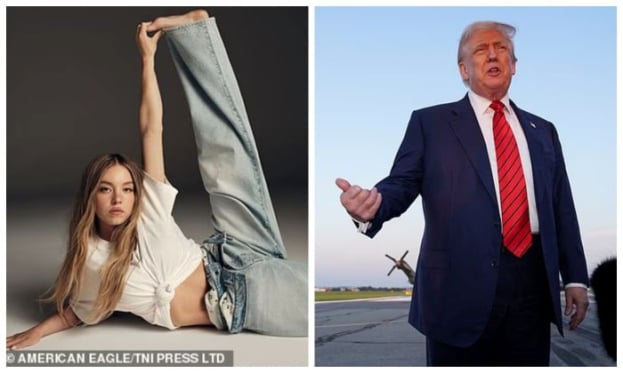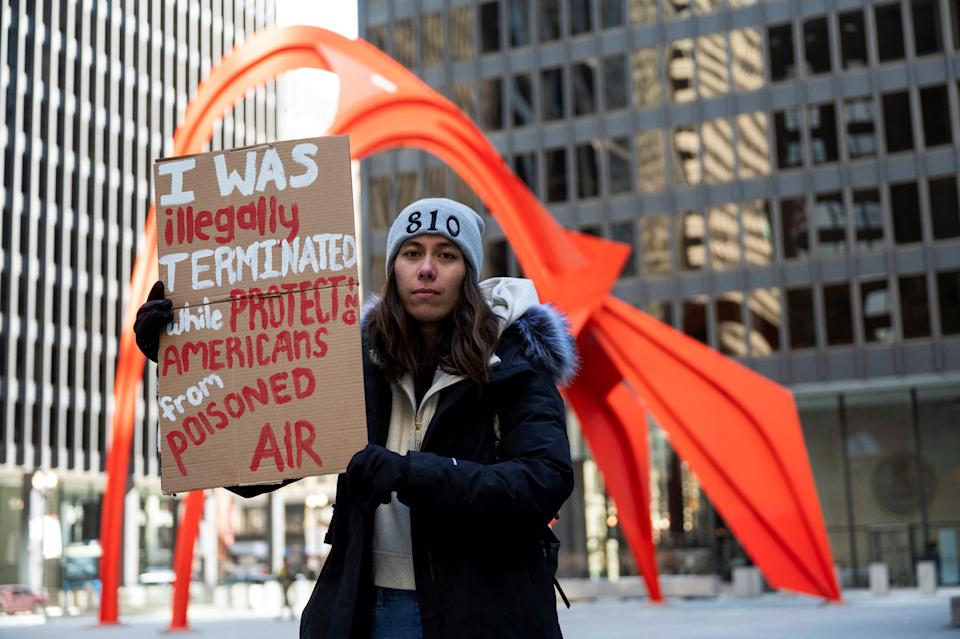In a political climate often filled with unexpected commentary and culture war entanglements, former President Donald Trump has made headlines once again — this time for discussing Hollywood actress Sydney Sweeney and clothing brand American Eagle. While Trump is no stranger to inserting himself into pop culture conversations, the convergence of his name with Sweeney and the iconic denim brand has sparked curiosity and controversy. Why exactly is Trump talking about Sydney Sweeney and American Eagle? The answer lies at the intersection of politics, celebrity, branding, and the ongoing battle for cultural influence in America.
Sydney Sweeney: From Starlet to Conservative Symbol?
Sydney Sweeney has rapidly risen in fame over the last few years thanks to her breakout roles in HBO’s “Euphoria” and “The White Lotus.” Despite her work largely targeting younger, liberal-leaning audiences, Sweeney has occasionally drawn attention from more conservative circles — not for her acting, but due to her family’s perceived political affiliations.
The conversation around Sweeney and conservatism began in earnest when photos emerged from a family gathering that included guests in MAGA-themed apparel. Although Sweeney herself did not explicitly voice support for any political party, the images were enough to spark online debates about whether she held conservative views. The speculation, though never confirmed, positioned her as an accidental figure in the culture war.
Trump, always attuned to cultural moments that resonate with his base, appears to have picked up on this energy. By discussing Sweeney, he signals his ongoing engagement with pop culture while reinforcing a narrative about young, popular figures possibly aligning with conservative values — or at least being unfairly criticized by the liberal media for their backgrounds.
American Eagle: A Brand in the Crosshairs
American Eagle, the popular clothing retailer, has long marketed itself as a youthful, all-American brand. Like many fashion companies, it has occasionally participated in political discourse through representation, sustainability efforts, and inclusion campaigns. In today’s climate, even neutral branding choices can become politically charged.
The company recently partnered with Sydney Sweeney for a new ad campaign, tapping into her Gen Z appeal. The collaboration featured Sweeney in a campaign designed to evoke nostalgia, empowerment, and classic Americana — values that, on the surface, seem to align with conservative ideals. Yet, some right-wing figures expressed frustration over American Eagle’s past support for progressive causes, like LGBTQ+ rights and environmental initiatives.
Trump’s mention of American Eagle may be rooted in his broader critique of American companies that, in his view, “go woke” or fail to align with traditional values. The fact that Sweeney — someone whom his supporters view as potentially sympathetic to their beliefs — is involved with a brand like American Eagle creates a paradox he can exploit. Trump has frequently used these moments to question the authenticity of corporate America’s messaging and to paint large brands as opportunistic or hypocritical.
Trump’s Cultural Strategy
Donald Trump’s political strategy has long involved blurring the lines between politics, entertainment, and identity. Rather than restricting his commentary to policy, Trump routinely weighs in on athletes, actors, and musicians, often leveraging controversies for political capital. His remarks on Sweeney and American Eagle are a continuation of this trend.
By discussing Sweeney, Trump aligns himself with a figure who — rightly or wrongly — has become a talking point in conservative media. By discussing American Eagle, he reinforces the idea that corporate America is in a battle between traditionalism and progressivism. Together, these subjects allow him to appeal to cultural conservatives who feel alienated by what they see as liberal domination of Hollywood and business.
This is not a new playbook for Trump. He previously criticized the NFL for kneeling protests, attacked Disney for its perceived liberalism, and mocked CNN as “fake news.” Each time, he garners attention not just from his base, but from media outlets eager to cover his latest cultural flashpoint. In that sense, talking about Sydney Sweeney and American Eagle is not a distraction — it’s a deliberate part of his strategy.
Reactions Across the Political Spectrum
Predictably, Trump’s comments have drawn mixed reactions. His supporters praised him for standing up to what they view as corporate pandering and liberal hypocrisy. Some celebrated Sweeney as a potential “Hollywood defector” from the left, despite no confirmed political statements from her.
Critics, meanwhile, argue that Trump’s focus on pop culture figures trivializes serious political discourse. Many also view his comments as opportunistic — an attempt to latch onto a rising star to co-opt her image for his own narrative. Others note the irony of a former president critiquing a clothing brand’s values while using his own name to license everything from steaks to university courses.
As for American Eagle, the brand has remained silent on the matter, likely preferring not to be drawn into a partisan firestorm. Sydney Sweeney has also not responded, perhaps wisely choosing to let her work speak for itself.
The Bigger Picture
At the heart of this episode is a larger question about the role of culture in American politics. Increasingly, elections are not only about taxes, immigration, or foreign policy, but about identity — and who gets to define it. Celebrities and brands are caught in the crosshairs of these battles, whether they intend to be or not.
Trump, more than any other modern political figure, understands the power of symbolism in the cultural arena. By talking about Sweeney and American Eagle, he isn’t just making offhand remarks; he’s attempting to shift the cultural battlefield in his favor. In an age where attention is power, even a mention from Trump can transform a pop culture moment into a political flashpoint.
Whether this tactic benefits his campaign or simply fuels another cycle of media frenzy remains to be seen. But one thing is certain: Trump will continue to use every tool in his rhetorical arsenal — including denim brands and TV stars — to shape the conversation around American values.



